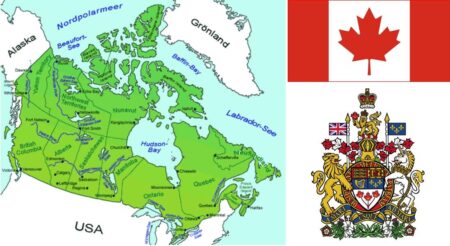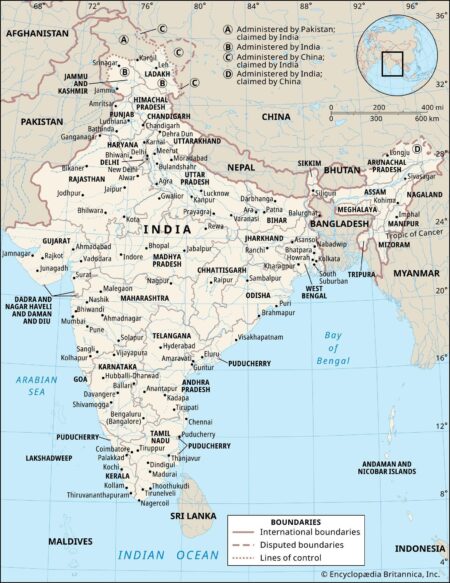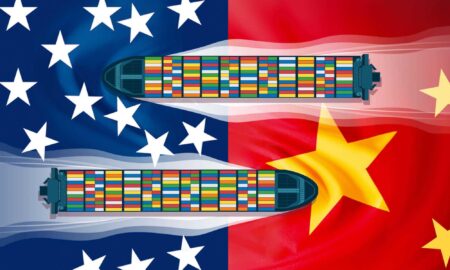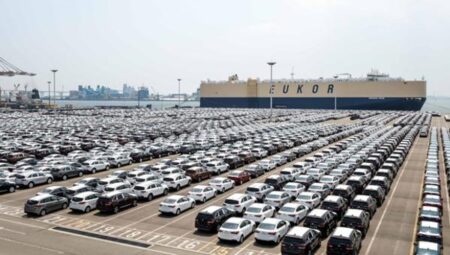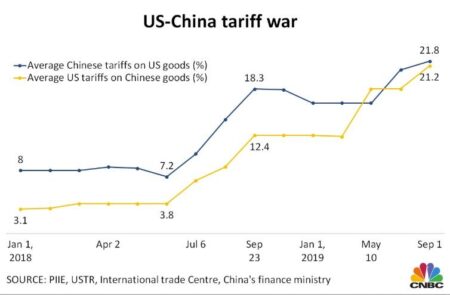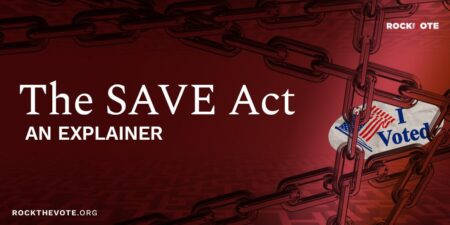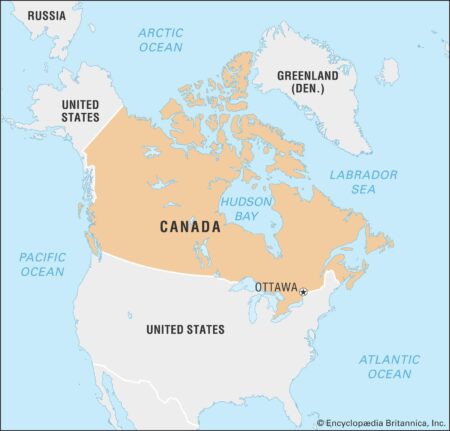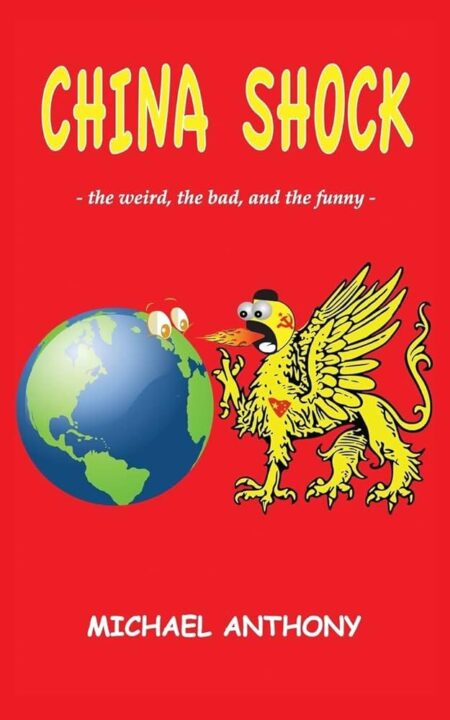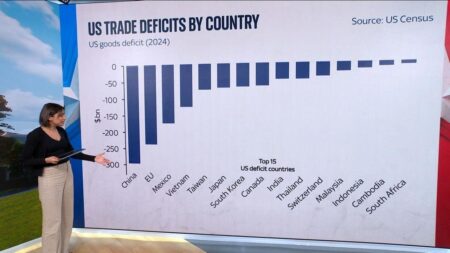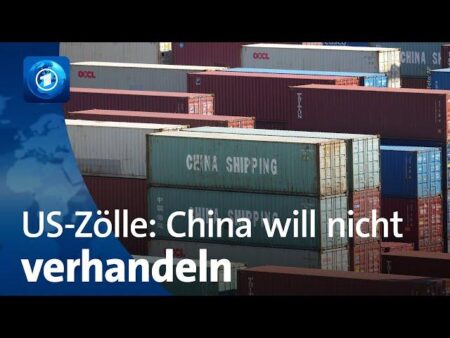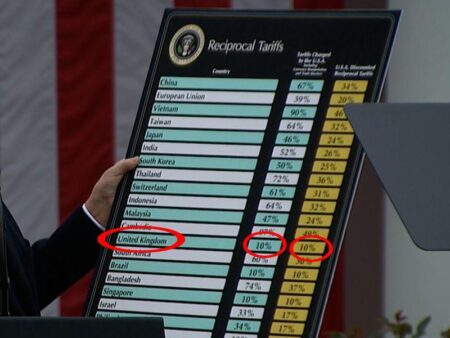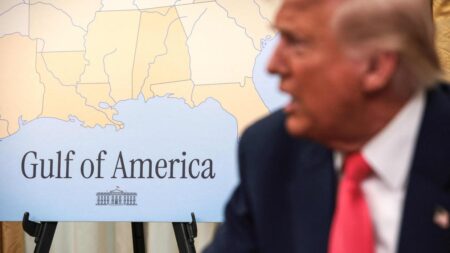In response to the recent tightening of auto tariffs by the United States, Canadian Prime Minister announced that Canada will implement matching tariffs. This move is aimed at protecting Canadian industries amid escalating trade tensions between the two countries.
Browsing: economic impact
India has asserted its commitment to fair trade practices following Donald Trump’s decision to impose a 90-day pause on tariffs. The Indian government emphasized that negotiations should not occur under pressure, reaffirming its stance on equitable economic dialogue.
The ongoing US trade war may lead to a significant shift in global trade dynamics, as experts suggest Chinese goods could increasingly find their way into European markets. This trend could reshape supply chains and impact economies on both sides of the Atlantic.
Australian miners are poised to benefit from China’s new restrictions on rare earth exports. As Beijing tightens its grip on this strategic resource, Australian firms are expected to fill the supply gap, bolstering their market position and boosting revenues.
Japan faces a potential loss of $17 billion in car exports if the United States implements proposed tariffs, according to the UN trade agency. This move could significantly impact Japan’s automobile industry, which is a vital part of its economy.
As the U.S.-China tariff war intensifies, Canadian consumers may face rising online shopping prices. Experts warn that increased tariffs on Chinese goods could lead to higher costs for retailers, which might be passed on to Canadian shoppers.
In a recent decision, the Biden administration announced that phones and computers will be exempt from the proposed 125% tariffs on Chinese imports initially suggested by former President Trump. This move aims to alleviate pressure on consumers and tech companies.
As tensions escalate in the ongoing trade conflict, experts weigh in on whether China can withstand a prolonged U.S. tariff war. With its vast manufacturing base and strategic economic measures, Beijing may have tools to mitigate the impact.
The SAVE Act seeks to amend regulations around financial aid and healthcare, prompting concerns among married women about potential implications for their eligibility. Critics argue it could disproportionately affect their access to vital resources.
Germany’s incoming Chancellor Friedrich Merz has revealed a new coalition government amid rising economic concerns, as fears of a recession loom. The recent reimposition of Trump-era tariffs intensifies uncertainties in the European economy.
Canada and U.S. markets closed higher Friday, concluding a volatile week marked by fluctuating tariff discussions. Investors responded positively to easing trade tensions, reflecting cautious optimism amid ongoing economic uncertainties.
The “China Shock,” a term describing the economic impact of China’s rise on American jobs, reveals critical lessons about globalization and labor. Contrary to President Trump’s interpretation, experts argue that understanding these dynamics is essential for future policy success.
Canada-made automobiles are set to experience significant price increases in the U.S. market, attributed to recently imposed tariffs. Analysts warn that these higher costs could impact sales and competitiveness, raising concerns for Canadian manufacturers.
Trump’s proposed 20% tariff on European imports looms large over Italian wine exports, threatening to disrupt a key market. As U.S. consumers face higher prices, industry experts warn of potential long-term impacts on producers and the overall economy.
In a bid to circumvent Trump-era tariffs, Apple orchestrated the shipment of over 1 million iPhones from India using six cargo planes. The move included a coordinated six-hour ‚Äúgreen corridor‚ÄĚ to streamline logistics and expedite delivery.
In a dramatic turn of events, Panama has moved to regulate cannabis, opening doors for its medicinal use. Meanwhile, Italy has opted for a ban, reversing previous progress. This juxtaposition highlights the varied global approaches to cannabis legislation.
In response to ongoing trade tensions, China has increased fees for U.S. tourists, with some costs rising by as much as 104%. The move follows former President Trump’s tariff policies, reflecting the deepening economic rift between the two nations.
The Biden administration announced that tariffs on Chinese imports have reached a staggering 145%, a significant escalation in trade tensions between the two nations. This move aims to address ongoing concerns over China’s trade practices and economic policies.
A steep decline in oil prices poses a significant challenge for Russia, jeopardizing its extensive funding for the ongoing war in Ukraine. As revenues dip, analysts warn that Moscow may face increased pressure to scale back military operations.
In a recent escalation of trade tensions, Trump’s proposed tariffs on Chinese goods are set to significantly impact ‘Main Street’ U.S. businesses that rely on Amazon. Experts warn that increased costs could crush small retailers struggling to compete.

